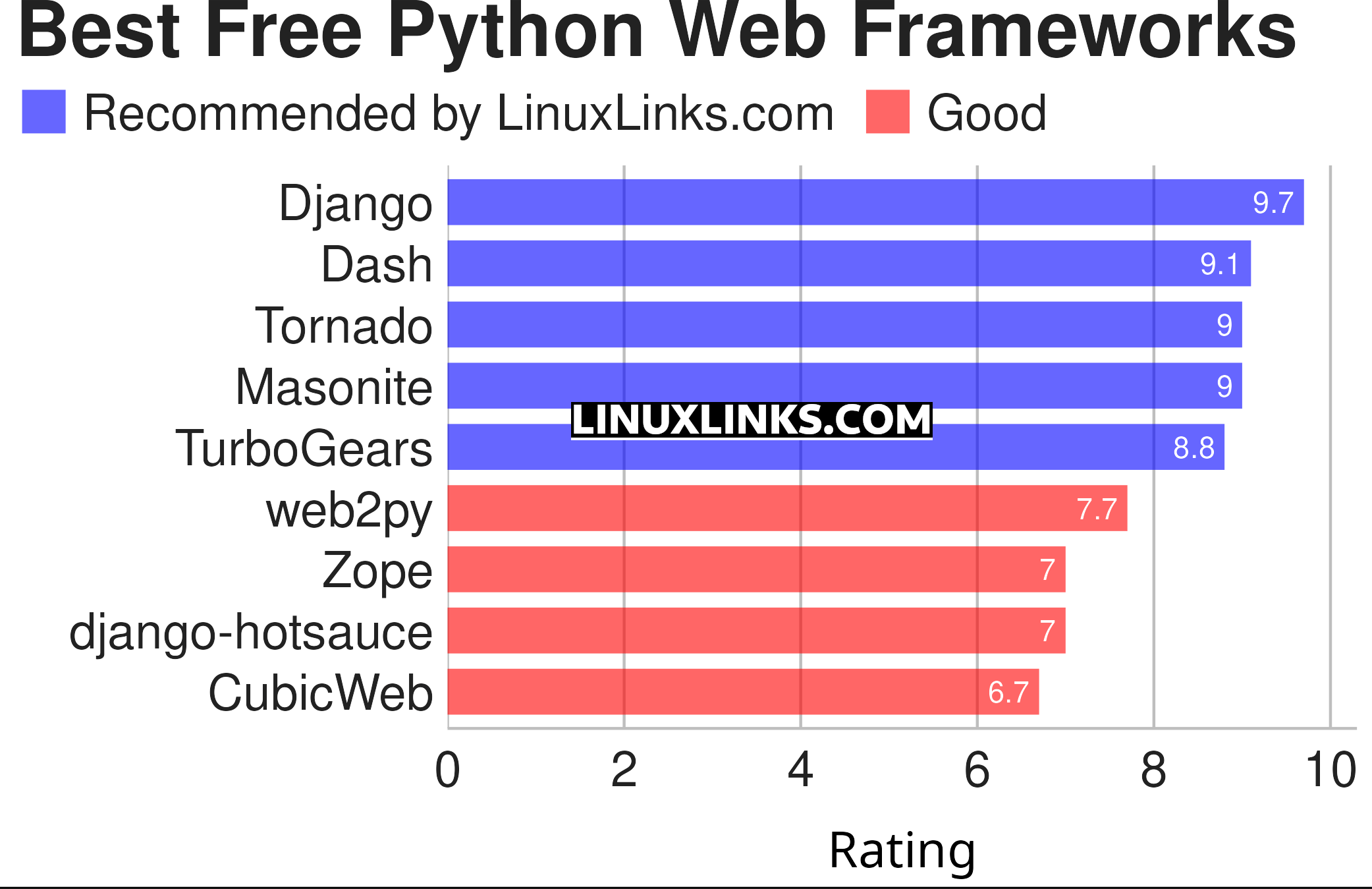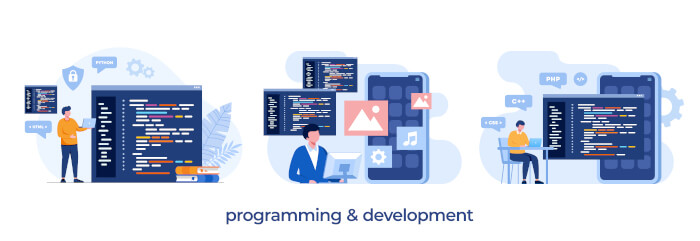Python is an increasingly popular programming language. It ranks very highly on sites listing the popularity of programming languages, such as the TIOBE Index, IEEE Spectrum ranking, and the PYPL PopularitY of Programming Language.
The prominence of Python is, in part, due to its flexibility, with the language frequently used by web and desktop developers, system administrators, data scientists, and machine learning engineers. It’s easy to learn and powerful to develop any kind of system with the language. Python’s large user base offers a virtuous circle. There’s more support available from the open source community for budding programmers seeking assistance.
One of the types of software that’s important for a web developer is the web framework. A framework “is a code library that makes a developer’s life easier when building reliable, scalable, and maintainable web applications” by providing reusable code or extensions for common operations. By saving development time, developers can concentrate on application logic rather than mundane elements.
There are a respectable number of open source Python web frameworks available to download. Django receives the most coverage, but our other recommendations may be better suited for your requirements. Here’s our verdict captured in a legendary LinuxLinks-style ratings chart.

Click the links in the table below to learn more about each framework.
| Python Frameworks | |
|---|---|
| Django | High-level web application framework |
| Dash | Build analytical web applications without JavaScript |
| Tornado | Framework, scalable web server, and asynchronous networking library |
| Masonite | Dev tool with all the features needed for rapid development |
| TurboGears | Framework based on the ObjectDispatch paradigm |
| web2py | Full-featured, full-stack framework for rapid development |
| Zope | Object-oriented web application server |
| django-hotsauce | Rapid web application development and testing |
| CubicWeb | Semantic web framework |
This article has been revamped in line with our recent announcement.
Background to Python
Python is a general-purpose high-level programming language. Its design philosophy emphasizes programmer productivity and code readability. It has a minimalist core syntax with very few basic commands and simple semantics, but it also has a large and comprehensive standard library, including an Application Programming Interface (API).
It features a fully dynamic type system and automatic memory management, similar to that of Scheme, Ruby, Perl, and Tcl, avoiding many of the complexities and overheads of compiled languages. The language was created by Guido van Rossum in 1991, and continues to grow in popularity, in part because it is easy to learn with a readable syntax. The name Python derives from the sketch comedy group Monty Python, not from the snake.
Learn Python with our recommended free books and free tutorials.
 Read our complete collection of recommended free and open source software. Our curated compilation covers all categories of software. Read our complete collection of recommended free and open source software. Our curated compilation covers all categories of software. Spotted a useful open source Linux program not covered on our site? Please let us know by completing this form. The software collection forms part of our series of informative articles for Linux enthusiasts. There are hundreds of in-depth reviews, open source alternatives to proprietary software from large corporations like Google, Microsoft, Apple, Adobe, IBM, Cisco, Oracle, and Autodesk. There are also fun things to try, hardware, free programming books and tutorials, and much more. |

No mention of Flask? https://flask.pocoo.org/
I did use zope some time ago (maybe 15 years) but they made an incompatible upgrade at some point with IMHO insufficient migration tools available. They may have improved since, but once bitten…
You are correct, there’s no mention of Flask. That’s because Flask is a microframework, and we’ll be covering the best Python microframeworks in the next article to be published.
A lot has changed in 15 years.